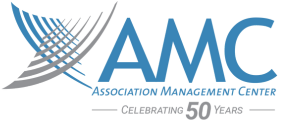
Recruit the Right Board: Behind the Scenes with Board Experts Will Brown and Mark Engle
In Recruit the Right Board: Proven Processes for Selecting Critical Competencies, authors Will Brown, PhD and Mark Engle, DM FASAE CAE, explore case studies of associations with high-functioning boards of directors, identify the competencies needed for highly effective board members, and provide a detailed framework for how to select the right board members to optimize performance.
To learn more about what makes this an essential board development resource for any organization, for nonprofit and for-profit alike, we interviewed Will and Mark for a deep dive into their insights on why board governance matters, how they chose their case studies, and how their book provides brand-new tools for optimizing board efficiency. A singular feature of this research is its focus on the competencies of the board members, rather than their seniority and experiences, providing research-based evidence of why competent board members create board efficiency.
In Recruit the Right Board, you focus on/discuss exemplary boards that are models for others, and boards that need optimization that you use for your case studies.
How did you chose the boards for your study?
Will: There were several processes for selecting the associations to work with. Mark has a lot of relationships with people who he knew need help in recruitment selection. He has observed and identified which boards are outstanding. The main question we asked ourselves was, “Are these boards exemplary?”
We wanted a variety of boards as our samples: trade, healthcare, national, international, regional and state-based associations. When it came down to it, we had two categories of these boards: the majority group of boards with comprehensive processes and the minority group who do unique things in that model.
Mark: We asked our network of lawyers and consultants to name some organizations that have advanced the makeup of their boards in significant ways. We then vetted the list through questionnaires and ultimately screening calls. The research team ensured we had a balance of trade and professional; state, national and international; various industry; and profession domains. The Case Studies were not qualified as high performing. The quantitative analysis did use a marker to determine high performing based on a set of responses to key board functions as identified by BoardSource prior research.
Recruit the Right Board builds on your previous ground-breaking ASAE Foundation governance research. What makes the research ground-breaking?
Mark: One fundamental shift we outline is the shift to non-competitive elections for leadership and why. As associations compete in a new environment, the old methodology for selecting leadership may not well serve the organization for the future. AMC Consulting Services does considerable consulting assignments with medical and legal associations. The competition for members and attendees in medical societies and bar associations has increased from private enterprise, institutions, and other nonprofit organizations. No longer do these associations “own the field” for education and community.
The skillsets we need in the board room to advance programming and initiatives for the field today are very different than they were 5 and 10 years ago. Both the Case Studies and the Samples are particularly valuable in the book.
Why is this research necessary for association professionals? Rather, what information void does it fill?
Will: Having a good group of folks who can serve and govern and fulfill those responsibilities and functions, irrespective of your industry, makes a difference for how these organizations work. It’s about having the right people in the room to make decisions and facilitate a process to guide the organization on a strategic level, and this idea of stewardship and leadership at the board level is particularly pressing in associations and everywhere. If we don’t have these people, it can create a number of issues and challenges. Before this study, we hadn’t articulated the procedures and operations of how you build this stuff out. In this space, in this topic, this is the first taxonomy of its kind, and so it has a high value proposition.
If an association’s board is not performing well, where is the first place they should start?
Mark: They should consider a Board Self-Assessment to identify where they are not performing well, and use the Evaluation Matrix in the book to determine do they have the right competencies and experience/demographics represented in the room to advance decision making for the organization.
If you had to choose one key takeaway from this book, what would it be?
Mark: My one takeaway is that there is so much you can do to optimize your organization when you answer these questions: can your organization make decisions as fast as the marketplace or profession in which you serve? Is your board comprised of individuals capable of advancing key decisions in a timely manner that balances opportunity with risk?
Recruit the Right Board is a print publication that may be purchased on the ASAE website at https://bit.ly/2yWYSFn.
Additionally, ASAE members may download a free 20-page PDF excerpt called Building Better Association Boards: Advancing Performance through Nomination, Recruitment, and Selection Processes that summarizes key findings from the ground-breaking studies of the new book at https://bit.ly/2ZYk8pY.
About the authors
Will Brown, PhD: A professor at the Bush School of Government and Public Service at Texas A&M University, Brown teaches courses such as Nonprofit Management, Social Innovation and Entrepreneurship, and Management. He and Engle have collaborated on research for the Board Selection Process for the ASAE Foundation. Read more about Will Brown.
Mark Engle, DM CAE FASAE: Engle is a principal at AMC who specializes in board governance and recruitment. He received his Doctor of Management degree in 2011 from Case Western Reserve University with his study in nonprofit governance, and has since participated in more than 300 board meetings. Read more about Mark Engle.
Be the first to know about the latest articles, news, and events from AMC. Sign up for our emails!


